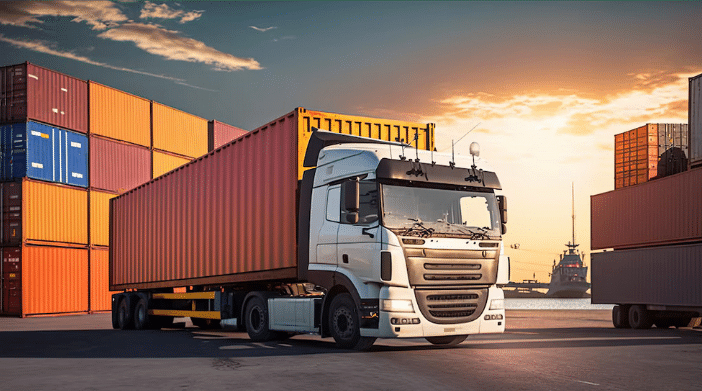Today’s transportation industry faces the constant challenge of delivering goods in a fast, efficient and safe manner. A key role in this process is played by truck trailers, an integral part of any logistics operation. In this article we will take a look at the different types of trailers, paying particular attention to their characteristics and applications.
Platform trailers
Platforms are among the most popular types of truck trailers. They are characterized by a flat base, which makes them ideal for transporting a variety of goods, including pallets, containers or larger loads with non-standard shapes. The platforms are equipped with side and rear restraints to ensure stability and safety.
Low-level trailers, specially designed for oversized items, are distinguished by their lower height compared to standard trailers. As a result, in the case of high loading, the total height of the semi-trailer including the goods remains acceptable and does not exceed acceptable standards.
Tarpaulin trailers
Another type of trailers are classic and versatile tarpaulin trailers. They are equipped with flexible elements that can be slid or opened, allowing easy handling of articles. They can be used to transport construction materials, food items or other goods that require protection from the weather.
Tank trailers
Specific tank trailers are used for the delivery of liquids, gases or bulk goods. They can be made of different materials, depending on the cargo to be transported, and the whole structure is adapted to the type of material being transported.
Here we can also distinguish tankers for the movement of hazardous materials, the construction of which is additionally reinforced and has more safety features. Such semi-trailers are driven only by trained drivers who have the appropriate authorizations and qualifications. At ALLCom in Gdynia, we have a team of active people who are highly experienced in handling various types of transportation.
Semi-trailers for loose materials
Bulk material trailers are designed to transport various types of bulk cargoes, such as grain, sand, gravel or cement. They are characterized by a closed, often cylindrical tank design, commonly referred to as a tub, which ensures safe transportation of materials, minimizing the risk of spillage or contamination.
Refrigerated trailers
Refrigerated trailers are designed for goods requiring controlled temperatures, such as foodstuffs, medicines or flowers. They have cooling systems that maintain stable thermal conditions inside the trailer, ensuring the freshness and quality of the products being transported.
Container trailers
Road forwarding also often uses container trailers, which are used to transport standard containers of various sizes that comply with international ISO standards. Equipped with special lashing systems, they provide stability and security. They are commonly used in international and intermodal translocation, which uses at least two different forms of transportation (e.g., road, rail, sea, air) in a single journey of goods.
Truck trailers are essential for efficient shipping of a variety of items. From platform trailers to low-profile, tarpaulin trailers to specialized liquid trailers, each type meets specific requirements depending on the type of cargo and travel conditions.
